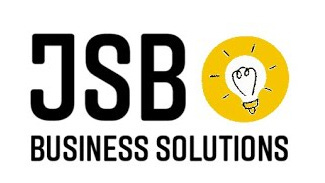Avoiding Common Pitfalls: A Guide for Entrepreneurs & Creatives | An Interview with Motown Writers & Michigan Literary Network
Disclaimer: This content has been made available for informational and educational purposes only and is not meant to be a substitute for legal, accounting, or other professional advice. If you have specific questions about any legal matter, you should consult with an attorney or other professional services provider.
Embarking on the entrepreneurial journey can be both exhilarating and daunting, especially for creatives and writers who are transforming their passions into businesses. In a recent interview with Motown Writers and the Michigan Literary Network, we explored the crucial areas where entrepreneurs often falter and offered practical advice to navigate these challenges. From understanding the nuances of business structures and their tax implications to mastering the art of contract agreements and maintaining compliance with LLC regulations, this guide delves into the essential knowledge needed to build a robust and legally sound business.
Thank you for the invitation Mrs. Sylvia Hubbard! It was such a rewarding and fun experience. Join us as we unpack these insights and provide actionable steps to help you avoid common mistakes and thrive in your entrepreneurial endeavors.
1. Understanding Business Structure and Taxes
The structure of your business has a significant impact on your taxes, investment opportunities, and overall operations. Whether you choose a sole proprietorship, partnership, LLC, or corporation, each structure comes with different tax implications and legal requirements. It's crucial to select the right structure from the start and understand how it affects your business.
2. Misconceptions About LLC Protection
Many entrepreneurs believe that forming an LLC is all they need to protect themselves from lawsuits. However, to enjoy the benefits of an LLC, you must operate in a compliant manner. This includes:
Avoiding Commingling of Funds: Keep your personal and business finances separate.
Paying Licensing Fees: Ensure all necessary fees are paid on time.
Having an Operating Agreement: This document outlines the management structure and operating procedures of your LLC.
Keeping Corporate Minutes: Documenting important decisions and meetings helps maintain your LLC’s legal standing.
3. Signing Agreements Correctly
Signing business agreements, documents, and contracts in your personal name can be risky. Always sign documents in your business name to protect yourself legally and financially. This simple step can prevent personal liability and provide a clearer separation between you and your business.
4. Personal Branding
In the early stages of your business journey, remember that you are the brand. As an entrepreneur, you are not just a business person; you are the business. Building a strong personal brand can help you establish credibility and attract customers.
5. Estate Planning and Operating Agreements
Having an estate plan and operating agreement in place is essential, especially when dealing with issues of death and disability. These documents ensure that your business can continue operating smoothly and according to your wishes, providing peace of mind for you and your loved ones.
6. Understanding Contract Mechanics
Contracts are the backbone of business transactions. It's vital to understand the mechanics of a contract, including:
Laws of Rescission: The conditions under which a contract can be voided.
Payment Schedules: Clear terms on when and how payments will be made.
Scope of Work: Detailed descriptions of the services or products to be provided.
Attorneys Fees: Clauses regarding the payment of legal fees in case of disputes.
Arbitration: Methods for resolving disputes outside of court.
Personal Guarantee Loopholes: Understanding the implications of personal guarantees.
Non-Compete Clauses: Restrictions on working with competitors post-employment.
7. Employment Classification
It's crucial to distinguish between contract workers and employees. Each classification comes with different rights and tax obligations. Misclassification can lead to legal issues and financial penalties.
8. Protecting Against Business Liabilities
Protecting yourself against business liabilities is essential. Be aware of personal guarantees, sunset rules regarding personal liabilities, and asset exemptions. These measures can shield your personal assets from business risks.
9. Maintaining Your Digital Footprint
Your online presence is a valuable asset. Ensure you understand its importance and how to manage and protect it. A strong digital footprint can enhance your brand and attract more customers.
10. Using Non-solicitation Agreements
Non-solicitation agreements are critical for protecting your business interests. Understand how to use them properly to prevent employees or partners from poaching your clients or staff.
Conclusion
Avoiding these common mistakes can save you from significant headaches and setbacks. By understanding and addressing these areas, you can build a solid foundation for your business. Always seek professional advice and stay informed to navigate the complexities of entrepreneurship successfully.
Take the first step towards elevated performance by scheduling your consultation with JSB Business Solutions. Click this link and schedule a day and time that works best for you.
The world around us wasn’t built by the exceptional. It was built by everyday people who were willing to do exceptional things. Go build something.
Want to learn more about me? Visit my online profile here. Interested in collaborating, gain more insight by clicking here.

Thanks for reading The Grow Givers Project! Subscribe for free to receive new posts and support my work. And remember, sharing is caring.



